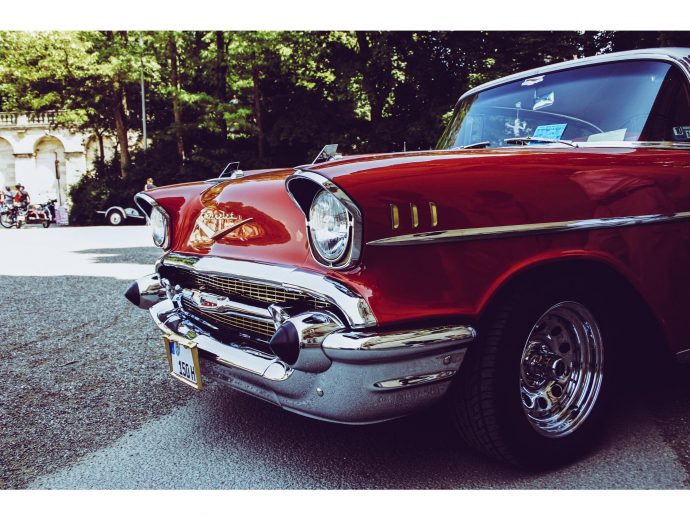Categories more
- Adventures (17)
- Arts / Collectables (15)
- Automotive (37)
- Aviation (11)
- Bath, Body, & Health (77)
- Children (6)
- Cigars / Spirits (32)
- Cuisine (16)
- Design/Architecture (22)
- Electronics (13)
- Entertainment (4)
- Event Planning (5)
- Fashion (46)
- Finance (9)
- Gifts / Misc (6)
- Home Decor (45)
- Jewelry (41)
- Pets (3)
- Philanthropy (1)
- Real Estate (16)
- Services (23)
- Sports / Golf (14)
- Vacation / Travel (60)
- Watches / Pens (15)
- Wines / Vines (24)
- Yachting / Boating (17)
Preparing Luxury Cars for Sale: The Role of AI and Detailed Craftsmanship
Published
04/14/2024Selling luxury cars is an art that combines sophisticated technology with meticulous attention to detail. Dealerships specializing in high-end vehicles use a variety of techniques to ensure each car looks and performs its best before it hits the showroom floor. The integration of Artificial Intelligence (AI) has further refined these processes, enhancing both operational efficiency and customer satisfaction. Here’s how luxury car dealers prepare vehicles for sale:
Detailed Inspection and Documentation
The first step in preparing a luxury car for sale is a thorough inspection. This involves checking the mechanical condition, bodywork, and interior features to ensure everything is in optimal condition. Dealers use AI-powered diagnostic tools that can quickly analyze a car’s engine health, battery condition, and other critical mechanical aspects. These tools provide a detailed report that helps technicians identify and address any issues.
Cosmetic Reconditioning
Once the mechanical checks are complete, the car undergoes cosmetic reconditioning. This includes:
- Deep Cleaning: Every surface of the car is meticulously cleaned. AI-driven robotic systems are often used for washing and drying the exterior, ensuring a spotless finish without the risk of scratching the paint.
- Paint Correction: To deal with any imperfections in the paint, such as swirl marks or scratches, dealers use machine learning algorithms to determine the best compounds and techniques for making corrections.
- Interior Detailing: The interior car mats are vacuumed, and surfaces are polished; leather treatments are applied if necessary. AI-assisted devices can analyze interior materials to suggest the most effective cleaning agents and methods, preventing damage to sensitive materials.
Technological Enhancements
Luxury cars come with a wide array of technological features that need to be up-to-date and fully functional. Dealers ensure that software is updated to the latest version, which often involves AI-based systems that can automate updates and troubleshoot software issues autonomously.
Pre-Sale Testing
AI also plays a crucial role in the pre-sale testing phase. Autonomous driving features, electronic safety systems, and other advanced functionalities are tested using simulations that predict a wide range of operating conditions. AI algorithms assess how these features perform and make adjustments as needed, ensuring that the car’s high-tech systems meet the expected standards for functionality and safety.
Personalization
Understanding customer preferences has never been easier thanks to AI. Dealers use AI to analyze customer data and predict buying preferences, which helps in customizing the vehicles in the showroom to appeal to potential buyers. From selecting the models to showcase to determining the optimal configurations, AI helps in tailoring the sales approach to match the anticipated desires and needs of future clients.
Marketing and Sales
AI tools extend their utility to the marketing and sales processes. Automated systems can create personalized advertisements, target potential buyers through social media, and optimize listing prices based on market data. Virtual reality (VR) presentations, imagery augmented by AI, allow customers to experience the car in a virtual setting, exploring its features in a hyper-realistic simulation before viewing the actual vehicle.
Customer Interaction and Post-Sale Service
Finally, AI enhances customer interaction and post-sale service. Chatbots powered by AI provide 24/7 customer service, answering queries, scheduling appointments, and providing detailed product information. Post-sale, AI systems can send reminders for maintenance checks and possibly predict future issues based on the vehicle’s usage patterns.
Conclusion
In the luxury car market, where expectations and stakes are high, the use of AI and a detailed, hands-on approach by dealers ensure that vehicles not only meet but exceed customer expectations. From initial inspections to final touches and beyond, AI integrates seamlessly with traditional techniques to deliver a product that stands out in the competitive luxury automotive landscape. This blend of technology and craftsmanship is what sets these dealers apart, providing a superior buying experience and fostering customer loyalty.















